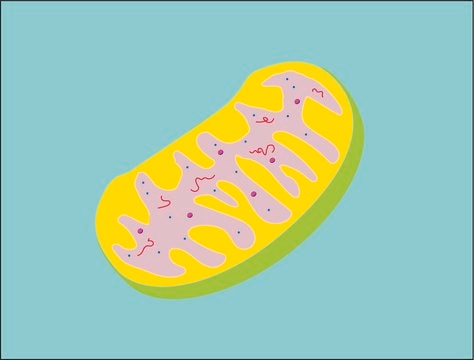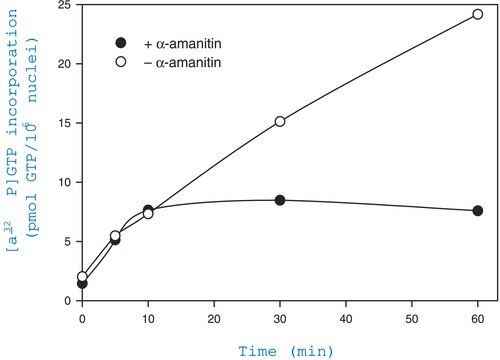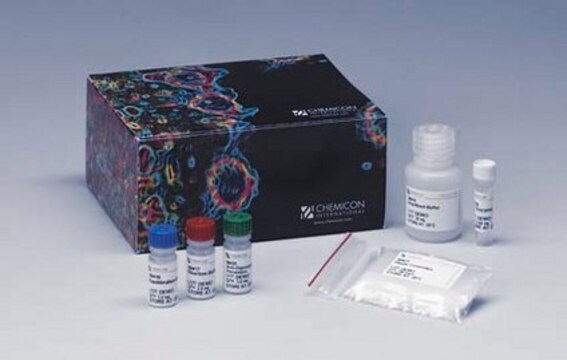CS0760
Isolated Mitochondria Staining Kit
1 kit sufficient for 50 reactions (in a 2 mL cuvette), 1 kit sufficient for 1000 reactions (using 96 multiwell plates)
About This Item
Produits recommandés
Niveau de qualité
Utilisation
kit sufficient for 1000 reactions (using 96 multiwell plates)
kit sufficient for 50 reactions (in a 2 mL cuvette)
Conditionnement
pkg of 1 kit
Conditions de stockage
dry at room temperature
Technique(s)
flow cytometry: suitable
protein staining: suitable
Fluorescence
λex 490 nm; λem 590 nm (JC-1 dye)
Application(s)
cell analysis
detection
Méthode de détection
fluorometric
Conditions d'expédition
dry ice
Température de stockage
−20°C
Application
Caractéristiques et avantages
- Fast, simple, and convenient method for staining isolated mitochondria and for assaying mitochondria intactness
- Contains all the reagents required for the detection of changes in mitochondrial inner-membrane electrochemical potential
- Contains the antibiotic Valinomycin that permeabilizes the mitochondrial membrane, and thus, dissipates the mitochondrial electrochemical potential. Valinomycin can be used as a control agent that prevents JC-1 aggregation
Principe
Remarque sur l'analyse
Composants de kit seuls
- DMSO 1 mL
- JC-1 Assay Buffer 5X 25 mL
- JC-1 Stain 25 μg
- Valinomycin Ready Made 100 μL
Produit(s) apparenté(s)
Mention d'avertissement
Danger
Mentions de danger
Conseils de prudence
Classification des risques
Acute Tox. 1 Dermal - Acute Tox. 1 Oral
Code de la classe de stockage
6.1A - Combustible acute toxic Cat. 1 and 2 / very toxic hazardous materials
Point d'éclair (°F)
Not applicable
Point d'éclair (°C)
Not applicable
Certificats d'analyse (COA)
Recherchez un Certificats d'analyse (COA) en saisissant le numéro de lot du produit. Les numéros de lot figurent sur l'étiquette du produit après les mots "Lot" ou "Batch".
Déjà en possession de ce produit ?
Retrouvez la documentation relative aux produits que vous avez récemment achetés dans la Bibliothèque de documents.
Les clients ont également consulté
Articles
Cellular apoptosis assays to detect programmed cell death using Annexin V, Caspase and TUNEL DNA fragmentation assays.
Oxidative stress is mediated, in part, by reactive oxygen species produced by multiple cellular processes and controlled by cellular antioxidant mechanisms such as enzymatic scavengers or antioxidant modulators. Free radicals, such as reactive oxygen species, cause cellular damage via cellular.
Notre équipe de scientifiques dispose d'une expérience dans tous les secteurs de la recherche, notamment en sciences de la vie, science des matériaux, synthèse chimique, chromatographie, analyse et dans de nombreux autres domaines..
Contacter notre Service technique










